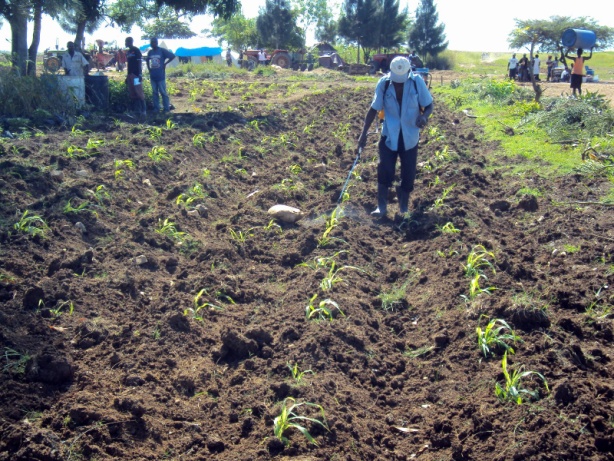
Taking the Long View of Post-Disaster Reconstruction: TaiwanICDF Assistance to Haiti Continues, Implementation on Schedule
Emergency aid poured into Haiti from around the world following last year’s 7.0-magnitude earthquake, which devastated Port-au-Prince and caused massive casualties. As part of these international efforts, the Taiwanese government and Taiwan’s private sector committed significant resources in support of disaster relief.
Once the immediate crisis had passed, development actors began to consider the implementation of long-term resettlement programs in Port-au-Prince and surrounding areas, yet many such moves were met with reservation by local government. At the TaiwanICDF, we adapted to the policies of Haiti’s government and responded with a proposal that remained true to Taiwan’s own foreign assistance objectives, making our greatest priority the continued improvement of livelihoods among resettled survivors. The plan, which remains on schedule following a rigorous planning process, was designed to increase employment and engage citizens in meaningful agricultural production, particularly by drawing on Taiwan’s advanced agricultural technology.
When the earthquake struck Port-au-Prince on January 12, its inhabitants were already burdened by the strains of overpopulation. With pressure now piled upon pressure, survivors opting to stay put in the wake of disaster faced dim prospects for employment, housing, education and health. Having listened to the needs of the Haitian government during post-disaster planning, Taiwanese authorities were allocated 379 hectares of land for resettlement and agricultural reclamation in St. Michel de l’Atalaye, roughly 200 km from the Haitian capital, and the TaiwanICDF was given responsibility for assisting survivors to the point where they could engage in independent, self-sufficient agricultural production.
The first phase of project implementation, which began in May 2010, focused on basic production of staple foods and has already yielded sizeable harvests of sorghum, maize, pigeon pea and other grains over 205 hectares. Sowing for the second phase of production is now planned for June 2011.
With agricultural production now well established at the project site, a separate bamboo crafts training program is set to launch this July. Instruction on the production of bamboo furniture and handicrafts will provide participants with an additional complement of practical skills that should bring in extra income and supply plenty of items that can be kept for individual use. By replicating Taiwan’s own experience of rural development, our assistance is supporting Haiti’s overall reconstruction efforts, restarting the process of sustainable agricultural development and helping local people to return to normal life.
Reconstruction doesn’t happen overnight. Planning for Haiti’s future requires a long-term outlook and has to reflect the country’s genuine needs. Haiti’s customs, laws and regulations differ from those in Taiwan and any new development work always requires a degree of adjustment as things get underway, if it is to achieve its desired effects. In Haiti and elsewhere, we continue to share Taiwan’s development experiences for the benefit of its partners own social and economic development. Working in harmony with these partners, we are tackling key development issues such as poverty, hunger, disease, illiteracy, environmental degradation and women’s empowerment.
- Update: 2018/03/01
- Hits:742

